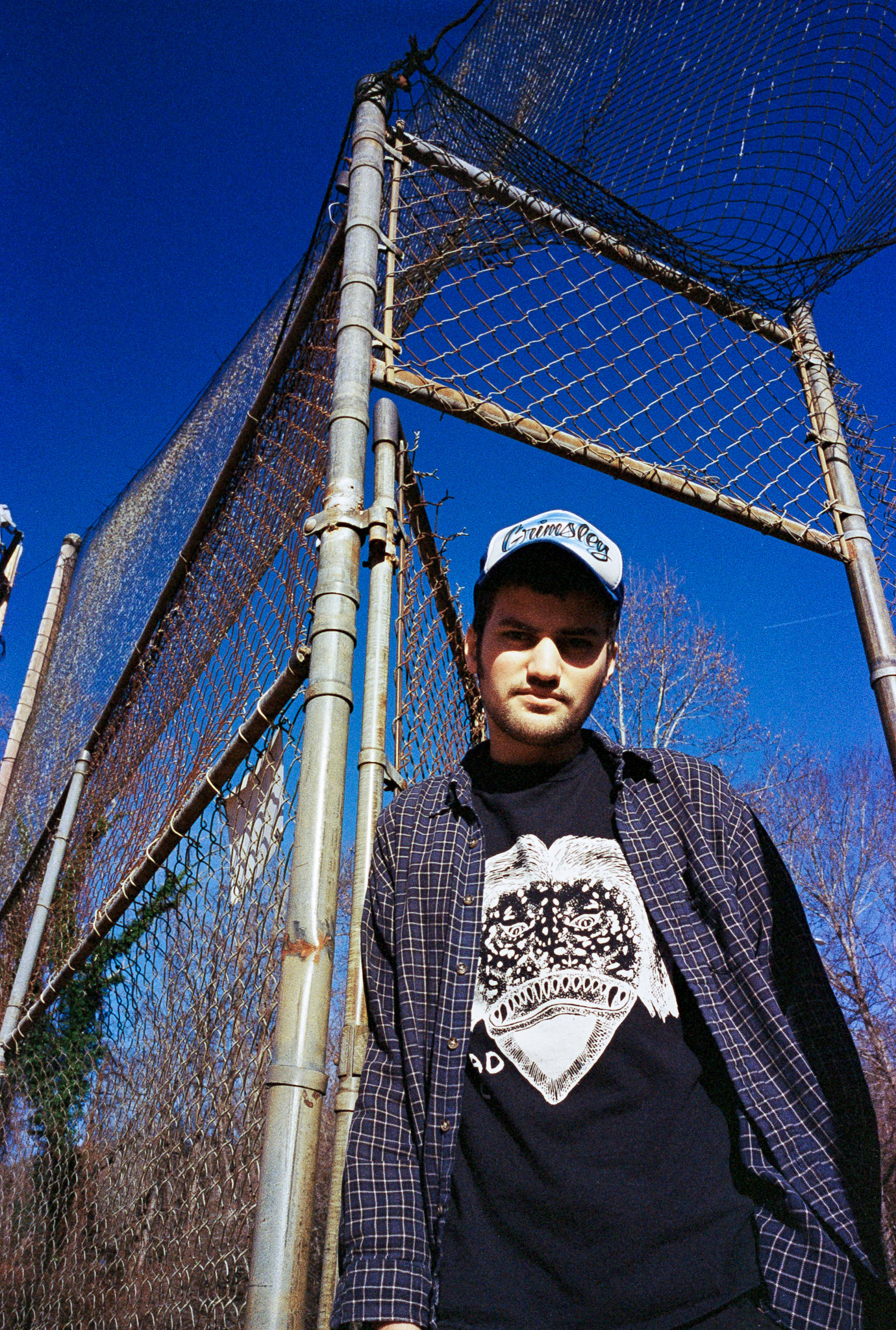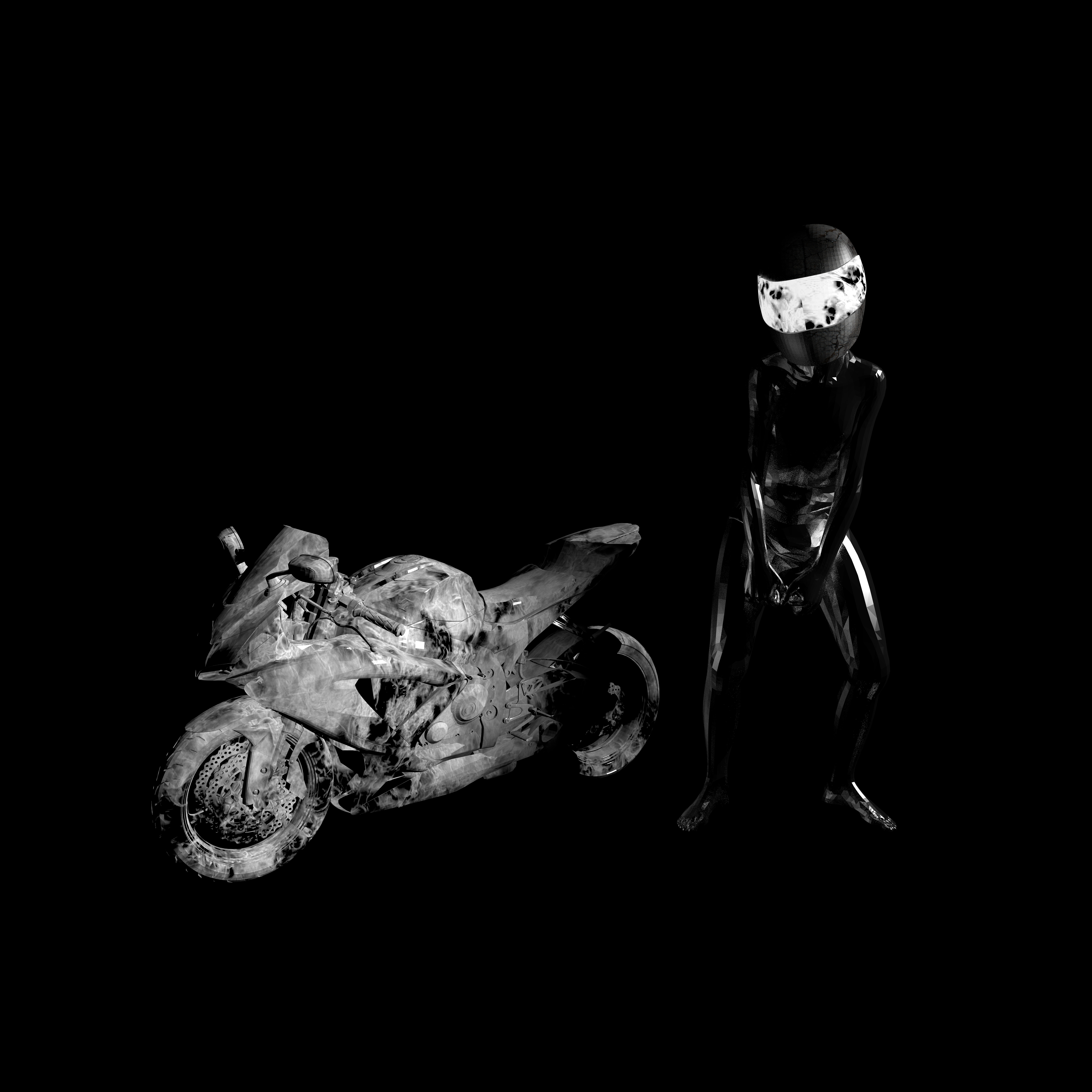The Guest List | MJ Lenderman
music
The Guest List is a regular book column that surveys the reading habits of our favorite musicians. For this edition, we spoke with Asheville songwriter-guitarist MJ Lenderman. His excellent new(ish) album, Boat Songs, is one we can’t stop listening to on repeat. The songs are funny and honest, with a lo-fi scrappiness that we find endearing af. So trust us when we say it’s a must-listen if you haven’t heard it already. We recently caught up with MJ to find out what he’s been reading lately.
SwR: You’re from the South—a region steeped in literary culture—and the lyrics on Boat Songs seem grounded in that world. Who are some of your favorite Southern writers?

MJ Lenderman: Larry Brown, for one. The thing about him that resonates with me is that he was self-taught. He didn’t have any schooling as a writer, but he was so obsessed with it that, while he was working as a firefighter, he used all his downtime to write. That speaks to me as a songwriter because you can’t learn to write a song by going to school. The only teachers I have are songs by other songwriters I admire.
The first book I read by Brown was Tiny Love, his collected stories. Then I read Joe and On Fire. On Fire was really intense. That book gives you a good sense of what his time as a firefighter was like. I also really like Dirty Work. The organization of that book works well, I think. Each chapter alternates between the perspectives of the two main characters. That’s something I think about a lot while writing songs: giving myself some parameters to work with. Brown does that a lot, now that I think about it. There’s the story “Boy and Dog.” That one really stuck with me. It looks more like a poem. He gives himself only five words per line, and it comes across as very musical.
I’m also a big fan of Sleepovers by Ashleigh Bryant Phillips. I have a personal connection with this book because she’s from North Carolina. I grew up in Asheville, and she’s from Woodland, which is on the eastern side of the state, near Wilmington. It’s a very small town and her upbringing was very different from mine. It’s cool how her writing gives voice to these rural areas that make up most of the state.
Right now I’m reading Breece D’J Pancake’s short stories based on Ashleigh’s recommendation, and I’m loving it so far.
SwR: Are there any particular authors or books that inspired the songwriting on Boat Songs?
MJL: When I think about that time, I mostly remember Harry Crews. I was deep into his catalog while working on Boat Songs. There’s a book of compiled interviews called Getting Naked with Harry Crews that spans his entire career. By the end of the book, he’s settled into a pretty serious discipline for writing every day. He’d wake up at three or four in the morning and write for four hours. That was all the writing he’d allow himself to do for the day. He also talks about being good at something other than writing. For him, that was teaching. So when he was having a bad day at writing, he could do something else and still find confidence in himself, which was necessary for him to continue writing. Reading about his writing process helped me find my own discipline during what ended up being a really prolific time for me. I didn’t get up that early, but I did try to wake up earlier than usual and write every day. So that was helpful to me.
SwR: The album features several songs about sports and sports figures: from Michael Jordan’s famous flu game to a WWE cage match to a sad-sack portrait of Dan Marino. What are some good books about sports that you’ve read?
MJL: Crews’s book Body is a good one. It’s about a female bodybuilding competition. He has the Southern-freak thing happening in so many of his books, but this one is rooted in his life in a way that’s really funny. The novel was inspired by his time working as a trainer for a bodybuilder in the 80s. He met her at a gym and somehow became her trainer and her boyfriend. I think this was after he quit drinking, and he got really into working out as a way to help with writer’s block. There’s a great YouTube video of Crews reading from the book that’s worth watching.
I also enjoyed Phil Jackson’s book Sacred Hoops, which is about how he used Zen Buddhism to wrangle the egos of the 90s Chicago Bulls and lead them to six NBA championships. He writes about how he found these spiritual practices that worked for him, then describes how he taught those same practices to Jordan, Pippen, and Rodman and got them to play as a unit rather than as a bunch of individual stars. I was always interested in the ideas of mindfulness and meditation, but I didn’t really understand them until I read this book. The way Phil talks about mindfulness exercises—noticing how thoughts enter your mind and being able to clear your thoughts to become a more productive person—really made sense to me. I haven’t done this, but I think it’d be useful to take some of those practices and apply them as a bandleader to get everyone on the same page. Phil’s a surprisingly good writer too, which I didn’t expect from a basketball coach. He has a few other books I want to check out. There’s an autobiography called Maverick: More Than a Game, where he writes about tripping on acid, I think.
SwR: Your lyrics have an understated sense of humor. For instance, this line from “You Are Every Girl to Me”: “Jackass is funny / Like the Earth is round.” Who are some funny writers that you admire?
MJL: There’s humor in most everything I like to read, but Richard Brautigan especially makes me laugh. Sometimes when I’m reading something really heavy, I’ll take a Brautigan book off the shelf and read a little bit as a palate cleanser. The plots in his books aren’t really plots, and the characters are mostly winos hanging around being bums. So there’s a lot of absurd humor just in that being the story. The first ones I read were Trout Fishing in America and A Confederate General from Big Sur. Then I discovered Dreaming of Babylon. It’s about this detective who’s supposed to be working a case but keeps having these bizarre daydreams about Babylon, a fantastical world where all sorts of strange things happen. Brautigan’s writing seems so simple. You read it and think, Oh, I could do that. I like to see that in art. I can’t do what he does, of course, but it’s nice when artists make you feel that way. I take that as inspiration.
SwR: What are your favorite books about music?
MJL: I really enjoyed Hanif Abdurraqib’s A Little Devil in America: Notes in Praise of Black Performance. It’s about the history of Black entertainment, and there’s a great chapter on Aretha Franklin. He tells a funny story about Mick Jagger seeing Aretha perform in a church and not knowing whether he should be dancing. I saw Hanif read a few years ago in Greenville and was totally blown away.
I like reading biographies, too. Jimmy McDonough’s Neil Young bio, Shakey, might be the best one I’ve read. It probably helps that I’m a huge Neil fan. It simultaneously made me love him more than I ever thought I could and get really sick of him. He has a habit of abandoning projects without communicating with the people involved. He did things like leave a CSNY tour halfway through—just disappeared—then, a few months later, those same musicians were recording with him again. But that’s probably part of what makes him so good: he only thinks about what he wants to do.
It was also cool to read about how all the albums I love got made—like On the Beach. That recording session was insane. There was this guy Rusty Kershaw, the brother of the famous fiddle player Doug Kershaw. They both grew up playing Cajun music, but Rusty eventually quit their band because he didn’t like playing the same songs every night. So when Neil and Rusty met, they got along because Neil liked Rusty’s ideas about the improvisational aspect of music. Fast-forward to the recording of On the Beach and Rusty’s hanging around the studio as a kind of vibe guy. Levon Helm and Rick Danko from The Band are there too, playing backup on “Revolution Blues,” a song about the Manson murders. The room is full of smoke because everyone’s stoned out of their minds, and Rusty thinks the music doesn’t sound menacing enough. So he starts slithering around on the ground like a snake, scaring the shit out of the musicians. Stephen Stills, who was hanging out in the studio as well, apparently got freaked out and had to leave, but that ended up being the take they used on the record. Lots of stories like that in Shakey. Plus, it’s well-researched. McDonough did a ton of interviews, and there are some really great stories from Neil’s mom early in the book that help you understand his life. Neil tried to stop the book from being published, even though he participated in some of the interviews. Once he read it, though, he decided he didn’t want it out, which is a good sign that it’s an honest portrait.
SwR: Any bookstores you’d care to shout out?
MJL: Bagatelle Books, Firestorm, and Downtown Books and News are all great bookstores in Asheville.
SwR: What’s the last really good book you read?
MJL: Norwood by Charles Portis is the last book I finished. I hadn’t read anything like it before. You have no idea where that book is going when you start it, which is always exciting. It’s a road trip book. It’s also a music book, I guess you could say, since Norwood is an aspiring musician. He wants to get on the Louisiana Hayride, but it never happens. Instead, he takes a cross-country trip, winds up marrying a girl he meets along the way, and they kidnap a chicken. There are some hilarious scenes when he gets to New York and goes to Times Square. Such a fun read.
The Guest List | The Paranoid Style
More music



